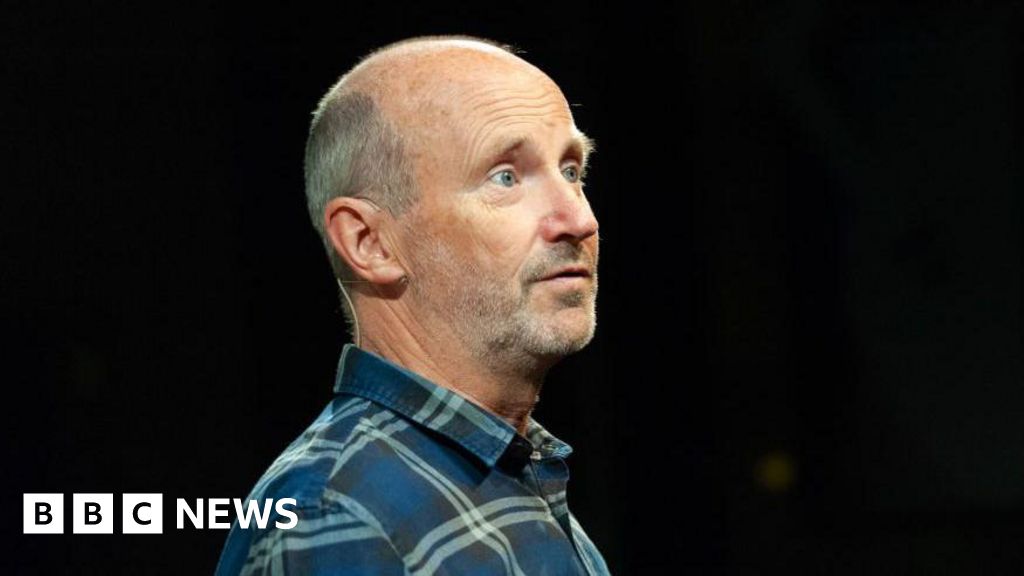We’ve entered the era of the superhero movie as sermon. No longer content with saving the world, spandex saviors are now being used to explain, moralize and therapize it. And a being from Krypton has shown up once again in a debate about real life; about borders, race and who gets to belong.
Superman. Of all symbols.
I’ve read reactionary thinkpieces, rage-filled quote tweets and screeds about the legal status of a fictional alien – enough to lose count. This particular episode of American Fragility kicked off because James Gunn had the audacity to call Superman “the story of America”. An immigrant, by definition, as he was always meant to be.
What set things off wasn’t just the sentiment – it was who said it, and how plainly. Gunn, now headlining DC’s cinematic future, told the Sunday Times that Superman was “an immigrant who came from other places and populated the country”. He spoke of Superman’s inherent kindness as a political statement in itself, noting that the film would play differently in some parts of America before adding, bluntly, that “there are some jerks out there who are just not kind and will take it as offensive just because it is about kindness”. “But screw them,” he added. It was that line – less the immigrant metaphor, more the unapologetic framing – that sent the usual outrage machine into motion.
Enter Dean Cain, a former TV Superman. Cain accused Gunn of politicizing the character, which is remarkably foolish, considering Superman’s been swatting at fascism since 1941. Meanwhile, over at Fox News, it’s been a full meltdown over the idea that Superman, canonically not of this Earth, might be played as … not of this Earth. Liberal brainwashing, they suggested. Identity politics in a cape.
But have they actually looked at David Corenswet? The man looks like he was made to sell oat milk in a Ralph Lauren ad. All cheekbones and cleft chin. If this is the foreign body in question, no wonder middle America has historically shrugged over Supes being an immigrant by definition.
Even still, there’s something telling about any collective gasp over a white, blue-eyed man with an immigrant backstory. The scramble to defend him says more than intended. For all the hand-wringing over Superman’s alienness, what rarely gets named is how meticulously his story was crafted to cushion the unease of the topic at hand: otherness itself – the very thing people pretend was always central to his character.
There are plenty of ways to frame the ridiculousness of this argument, clever ways to connect the dots, but the real fracture in Superman’s myth hits, oddly enough, during a quiet scene in Tarantino’s meditation on vengeance, Kill Bill: Vol. 2.
In the scene, the villain, Bill (David Carradine) unpacks what makes Superman different from every other hero.
“What Kent wears – the glasses, the business suit – that’s the costume,” Bill says. “That’s the costume Superman wears to blend in with us. Clark Kent is how Superman views us.”
It’s one hell of a tell – the kind of observation that pulls back the curtain on how Superman was engineered to understand the world, and how the world, in turn, reinforced how he should fit within it.
From the start, Superman was never meant to be an outsider. His creators, Jerry Siegel and Joe Shuster – sons of Jewish immigrants – didn’t craft him as a symbol of difference but as a projection of pure Americanness. They gave him a midwestern upbringing, an Anglo name in Clark Kent, and that square-jawed charm.
Siegel and Shuster were working against the backdrop of unchecked antisemitism, at a time when Jewish immigrants faced hostility. But instead of exploring immigrant “otherness”, the artists imagined a version of America where that alienness could be easily discarded via an outfit change. Superman wasn’t an outsider – he was the ideal immigrant, effortlessly slipping into a world that required no resistance. His story wasn’t about struggling to belong, but about the fantasy of belonging, with the privilege of choosing whether or not to fight for it.
That projection of safe, silent Americanness hasn’t remained confined to the pages of comic books. Today’s immigration politics run on the same fantasy. The myth of the “good” immigrant – quiet, grateful, easy to assimilate – still runs wild. It’s the same story that fuels the strange spectacle of politicians praising white South African farmers as victims of racial persecution, all while demonizing migrants from Latin America, the Middle East or sub-Saharan Africa.
The notion of who deserves to stay has always been racialized, selective and violent. Tom Homan, Trump’s border czar, has said that a person’s physical appearance could be a factor in the decision to question them. He later said it could not be “the sole reason”. But in April, Juan Carlos Lopez-Gomez, a US-born citizen from Georgia, was detained in Florida even after his mother showed authorities his birth certificate. In New York, Elzon Lemus, an electrician, was stopped because he “looked like someone” agents were after. Maybe he didn’t wear his suit and glasses that day.
Superman, the immigrant who makes people comfortable, has never been just a comic book character. He’s been a metaphor and living testament to the kind of “other” that wealthy nations have always preferred: those who blend in, assimilate and rarely challenge the systems that demand their silence.
If you’re still not convinced that Superman’s assimilationist fantasy is alive and well, just look at a White House meme from 10 July 2025: Trump dressed as Superman, with the words ‘Truth. Justice. The American Way.’ It’s a glaring example of how cultural symbols are repurposed – hijacked, really – to serve a narrow and self-congratulatory vision of America. That’s the trick of Superman: he’s been a blank canvas of a both-sides heroism, which makes everyone feel seen.
You don’t even need to like or dislike Superman for the Maga debate to pull you in, as it was always meant to. The culture war still appointed a celebrity to govern the most powerful nation on Earth. It still turned a corporate diversity initiative into a national crisis. And it took a serious conversation about immigration and made a polished, all-American character its face. The culture war distorts, and it continues, relentless as ever.
-
Noel Ransome is a Toronto-based freelance writer

 18 hours ago
4
18 hours ago
4










 English (US)
English (US)